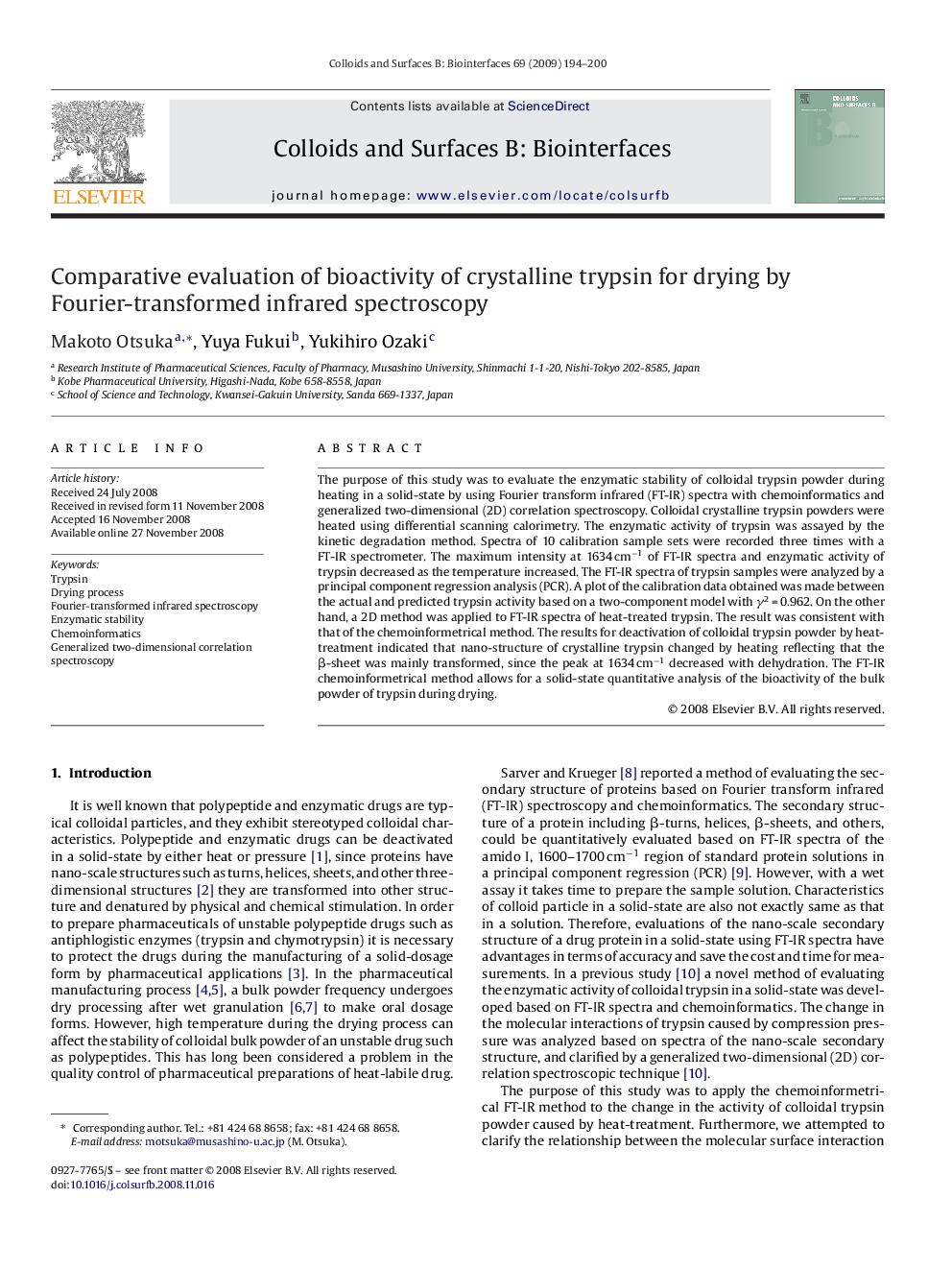| Article ID | Journal | Published Year | Pages | File Type |
|---|---|---|---|---|
| 602098 | Colloids and Surfaces B: Biointerfaces | 2009 | 7 Pages |
The purpose of this study was to evaluate the enzymatic stability of colloidal trypsin powder during heating in a solid-state by using Fourier transform infrared (FT-IR) spectra with chemoinformatics and generalized two-dimensional (2D) correlation spectroscopy. Colloidal crystalline trypsin powders were heated using differential scanning calorimetry. The enzymatic activity of trypsin was assayed by the kinetic degradation method. Spectra of 10 calibration sample sets were recorded three times with a FT-IR spectrometer. The maximum intensity at 1634 cm−1 of FT-IR spectra and enzymatic activity of trypsin decreased as the temperature increased. The FT-IR spectra of trypsin samples were analyzed by a principal component regression analysis (PCR). A plot of the calibration data obtained was made between the actual and predicted trypsin activity based on a two-component model with γ2 = 0.962. On the other hand, a 2D method was applied to FT-IR spectra of heat-treated trypsin. The result was consistent with that of the chemoinformetrical method. The results for deactivation of colloidal trypsin powder by heat-treatment indicated that nano-structure of crystalline trypsin changed by heating reflecting that the β-sheet was mainly transformed, since the peak at 1634 cm−1 decreased with dehydration. The FT-IR chemoinformetrical method allows for a solid-state quantitative analysis of the bioactivity of the bulk powder of trypsin during drying.
